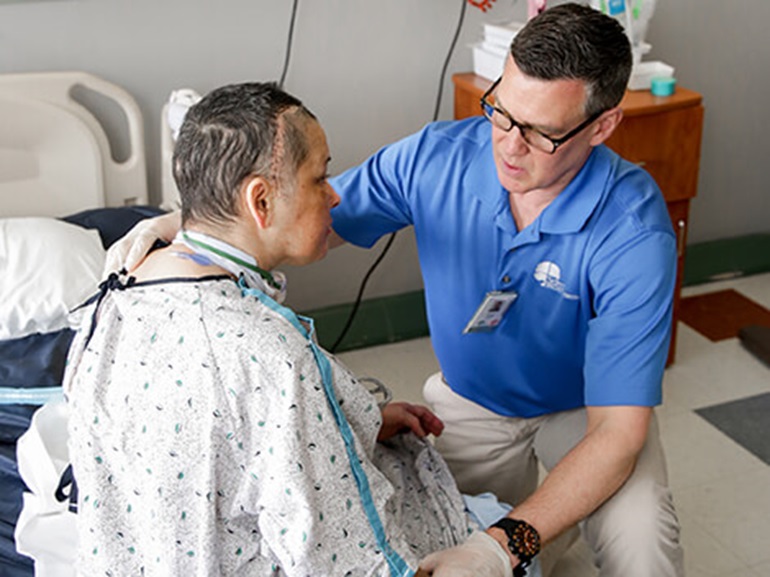Brain Injury

We make recovery possible
-
Our expert clinical staff is dedicated to providing individualized evaluations and close patient monitoring. We offer focused, personalized treatment tailored to each person’s specific recovery goals. Our interdisciplinary team provides:
- Daily physician visits
- Nursing care with registered nurses who are advanced cardiac life support-certified
- Respiratory therapy- 24 hours a day, seven days a week
- Pharmacy
- Physical therapy
- Occupational therapy
- Speech therapy
- Dietitian
- Case managers
-
The program is overseen by a neurologist. In addition, internists, pulmonologists, nephrologists, orthopedic consultants and infectious disease physicians address the medical issues presented by TBI and stroke patients such as:
- Respiratory management- including mechanical ventilation liberation and airway management
- Weekly ventilator wean rounds with pulmonologist
- Dialysis or renal management
- Wound care (including surgical wounds; stage 3 or 4 pressure ulcers)
- Infectious disease management (i.e., sepsis and/or multidrug-resistant organisms)
- Pharmacological management (i.e., stabilizing drips)
- Specialized nutritional management (i.e., total parenteral nutrition and management of naso-gastric and gastrostomy/jejunostomy tubes.) These tubes supply liquid medicine and nutrition to critically ill patients. They are inserted directly into a vein, down the nose or under abdominal skin to either the stomach or small intestine, respectively.
Critical illness recovery hospitals also provide the rehabilitation services to address the weaknesses and challenges that result from TBI and stroke. We offer specialized care for patients who cannot tolerate prolonged rehabilitation therapies.
Our physical, occupational and speech language pathologists develop an individualized treatment plan geared to each patient’s needs, with the goal of improving over time. Our primary goal is to medically stabilize the patient and successfully transfer him or her to the next appropriate level of care, where longer periods of therapeutic rehabilitation can take place. - Respiratory management- including mechanical ventilation liberation and airway management
-
- Language/communication evaluation and treatment for:
- Aphasia, the loss of ability to understand and/or express speech, and language
- Dysphagia, difficulty/discomfort in swallowing (program includes instrumental swallow evaluation and vital stimulation)
- Cognitive retraining to overcome deficits in thinking, decision-making and guidance on how to stay safe
- Mobility program focused on functional movement (e.g., getting in/out of bed, use of a wheelchair and walking)
- Balance, coordination, muscle strength and range of motion
- Daily living activities (e.g., bathing, dressing, toileting and self-feeding)
- Family education and training on how to help your loved one as he or she moves through the recovery process and the next level of care, or home.
- Language/communication evaluation and treatment for: